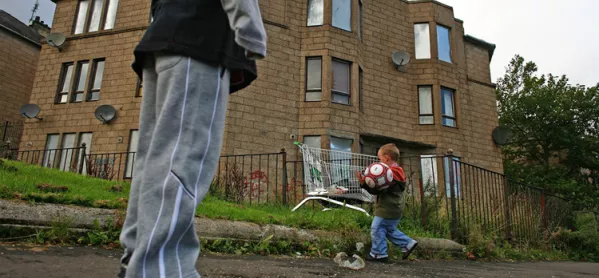Poverty has lost much of its power to shock. In days gone by, intrepid writers like Charles Dickens and George Orwell gripped readers by giving voice to an unknown underclass that had few rights and little hope.
The great social reforms of the 20th century were fuelled by public outcry over the squalor, disease and stunted lives - literally and metaphorically - to be found in downtrodden swathes of the country.
Now, though, it feels like we are inured to poverty - just when it’s making a comeback.
It has become a nebulous word, one that no longer really resonates in a rich country where it’s often assumed (whatever official figures say) that no one’s really living in poverty, not like the dwellers of a Johannesburg township or a Rio favela.
Indeed, British poverty is treated like a grisly peepshow, where tabloid rants and tawdry documentaries peddle the myth that benefits spongers are the greatest social ill of our times.
Blowing away complacency
A new report includes several killer statistics to blow away complacency around poverty (see this week’s TESS for the full story).
Consider this: in Edinburgh in 2014, only six students from the capital’s poorest families gained three As at Higher - compared with 290 from the wealthiest families did so.
Consider, too, that 22 per cent of children in the city fall under the internationally agreed definition of poverty. That’s perhaps unsurprising, given it’s fairly well known that about one in five children in Scotland lives in poverty. But what about this: according to the long-running Growing Up in Scotland study, over a seven-year period 55 per cent of all children will have experienced at least one year of poverty.
That’s mind-boggling when set against all the social problems and flatlining life chances that correlate with poverty; even more so when we consider that the 212,000 children in poverty in Scotland are expected to be joined by another 100,000 children by 2020.
Yet to throw such figures around can actually be counter-productive: it’s already such a complex problem that raising awareness of its growing scale could do little more than make people feel powerless and switch off.
Robert Winder’s book Bloody Foreigners, a history of immigration to Britain, shows how attitudes can change when an issue becomes personal and human.
Edinburgh’s example
So, while someone might be highly intolerant of migrants when they know them only as an indistinct and remote mass of people, the same person’s compassion emerges if they actually meet individual migrants. A similar principle might be applied to schools in Edinburgh’s anti-poverty project, all in relatively deprived areas but where teachers admit that they were previously ignorant about the symptoms and impact of poverty.
Too often the sky-high house prices and Unesco prestige of the capital mask the fact that every single council ward records a child poverty rate of more than 10 per cent.
But the city is attempting to confront the effects and underlying causes of poverty directly with pupils and teachers, and helping schools to spot tell-tale symptoms that drag a child’s life downwards.
Some proposed measures may prove unworkable (will any headteacher have the nerve to outlaw school proms?) but Edinburgh is heading in the right direction.
Schools cannot reverse the advance of poverty - but they can provide crucial support to children at risk from what has become a defining scourge of our times.
This is an article from the 10 June edition of TESS. This week’s TESS magazine is available in all good newsagents. To subscribe, click here. To download the digital edition, Android users can click here and iOS users can click here
Want to keep up with the latest education news and opinion? Follow TES on Twitter and like TES on Facebook




